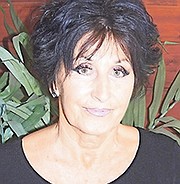By Victoria Sarne
“Only those who will risk going too far can possibly find out how far one can go.” – Thomas Stearns Eliot
We all like to feel comfortable in our surroundings and in our relationships, whether with family, friends or work associates. Feeling uncomfortable is, well, uncomfortable, and affects our enjoyment not only of the moment but often influences our behaviour.
Most of us are not usually at our best when we are stressed or in situations we don’t particularly like. We may react in a negative way by retreating into silence, or by being rude, hostile or antisocial in any number of ways which don’t reflect our character or normal way of interacting.
And yet, the flip side of feeling discomfort is that it can be the very motivation we need to change and grow. When we are comfortable we don’t always appreciate the positives in our lives, we take them for granted and become complacent.
Whilst being settled and at peace, happy with our choices is something we aim for, it can sometimes make us intellectually and emotionally lazy. To reach some of our cherished goals whether personal or professional means we often need a bit of a shake-up. Learning new ways to assess our lives materially, emotionally and spiritually requires a motivating factor, a catalyst of some kind. It’s so much easier to settle but it will never allow us to reach our full potential and be our best selves.
Hopefully that challenge is nothing more serious than discomfort and not tragedy, but it has to be an experience sufficiently uncomfortable to make us take a good look at our lives; perhaps we will see that we are not living up to our potential; that we may not be taking advantage of the opportunities which are there waiting to be explored. Sometimes we just need to open our eyes and re-evaluate then be ready to challenge ourselves. In the same way that we go to the gym for a work out to train our bodies to make them serve us better, we must learn to train our minds, redirect our focus and step through the looking glass to see what our world looks like from a different point of view.
For most people the biggest challenge is to change the way we talk to ourselves, our internal conversations that guide our actions. We have to make sure that they are positive and not overloaded with doubt and negativity. To be our best selves it is essential that we learn to acknowledge our fears honestly. Fear is a normal part of the process. If we didn’t have some measure of fear we would allow ourselves to fall into all kinds of dangerous situations. Learning to keep it under control gives us power to see that a challenge is often an opportunity.
In the future the survival of the human race will not depend on who is the cleverest, has the most education or has the most power, but who is the most adaptable to evolving circumstances. We all have unlimited potential to change and grow and to achieve our goals whether they are personal or professional – the only thing that holds us back is the limitation we put on ourselves.
Learning to be brave in the face of discomfort or danger, or any kind of challenge which we find difficult, is an achievement in itself. It’s possible to get comfortable with being uncomfortable as long as we understand it’s simply part of the process to work through to reach our longed for outcome.
•For questions and comments, e-mail victoria.conversations@gmail.com, or visit vixanwriter@blogspot.com.





Comments
Use the comment form below to begin a discussion about this content.
Sign in to comment
OpenID